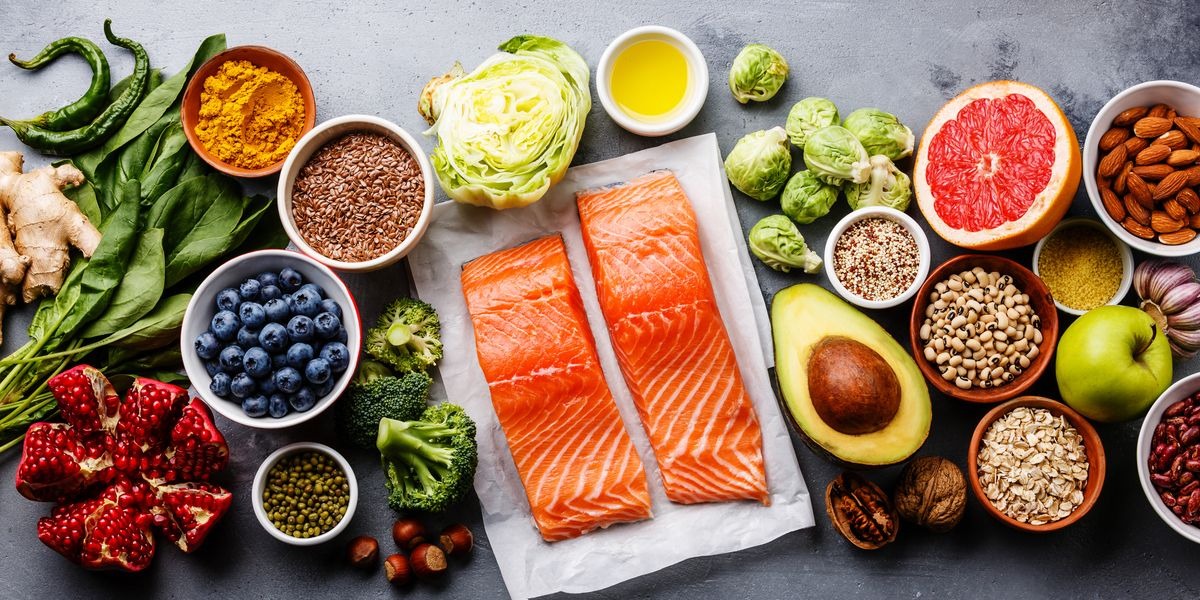Balanced meals are the cornerstone of achieving fitness goals, whether you’re aiming to build muscle, lose weight, or enhance overall health. Planning and preparing meals with the right balance of nutrients is essential for success. Here’s a simple guide to help you create balanced meals tailored to your fitness objectives. Importance of Creating Balanced Meals
Balanced meals are the cornerstone of achieving fitness goals, whether you’re aiming to build muscle, lose weight, or enhance overall health. Planning and preparing meals with the right balance of nutrients is essential for success. Here’s a simple guide to help you create balanced meals tailored to your fitness objectives.
Importance of Creating Balanced Meals for Fitness Goals
Creating balanced meals for fitness goals is crucial for optimizing performance, supporting muscle growth, and fueling recovery. By incorporating a mix of macronutrients – carbohydrates, proteins, and fats – you can ensure sustained energy levels and promote muscle repair and growth. Moreover, balanced meals contribute to overall well-being by providing essential vitamins, minerals, and antioxidants necessary for optimal health.

Image by: Yandex.com
Understanding Calorie Counting for Weight Management
Calorie counting for weight management involves monitoring your daily energy intake to achieve and maintain a healthy weight. By balancing calorie intake with expenditure, you can create a calorie deficit for weight loss or a surplus for muscle gain. However, it’s essential to focus not only on quantity but also on the quality of calories consumed, prioritizing nutrient-dense foods to support overall health and fitness goals.
Planning Balanced Meals: A Step-by-Step Approach
- Assess Your Nutritional Needs: Determine your daily calorie and macronutrient requirements based on your fitness goals, activity level, age, weight, and gender.
- Choose Nutrient-Dense Foods: Select a variety of whole foods rich in vitamins, minerals, and fiber, such as lean proteins, whole grains, fruits, vegetables, and healthy fats.
- Balance Macronutrients: Aim to include a source of protein, complex carbohydrates, and healthy fats in each meal to support muscle repair, energy production, and satiety.
- Control Portions: Practice portion control to avoid overeating and ensure you’re consuming the appropriate amount of calories for your goals.
- Plan Ahead: Invest time in meal prep to streamline the process and have nutritious meals readily available, reducing the temptation to opt for convenience foods high in empty calories.
Tips for Successful Meal Prep and Execution
- Batch Cooking: Prepare large quantities of staple foods like grains, proteins, and vegetables to mix and match throughout the week, saving time and ensuring variety.
- Utilize Storage Containers: Invest in quality storage containers to portion and store meals safely, keeping them fresh and easily accessible.
- Include Snacks: Prepare healthy snacks like nuts, fruits, yogurt, or homemade energy bars to curb cravings and maintain energy levels between meals.
- Stay Flexible: Adapt your meal plan based on changes in schedule, preferences, or nutritional needs, ensuring sustainability and enjoyment.
- Monitor Progress: Regularly assess your progress towards your fitness goals and adjust your meal plan accordingly to optimize results.
Why are balanced meals important for fitness goals?
Balanced meals provide the necessary nutrients to support muscle growth, energy levels, and overall health. They ensure that you’re consuming the right combination of macronutrients (carbohydrates, proteins, and fats) to fuel your workouts, aid in recovery, and optimize performance.
How does calorie counting contribute to weight management?
Calorie counting involves tracking your daily energy intake to create a calorie deficit for weight loss or a surplus for muscle gain. By understanding your calorie needs and balancing intake with expenditure, you can effectively manage your weight while still meeting your nutritional requirements.
What are some tips for creating balanced meals?
Some tips for creating balanced meals include assessing your nutritional needs, choosing nutrient-dense foods, balancing macronutrients, controlling portions, and planning ahead through meal prep. These strategies help ensure that your meals are well-rounded and provide the necessary nutrients to support your fitness goals.
How can I incorporate meal prep into my routine?
Incorporating meal prep into your routine involves setting aside time each week to plan and prepare your meals in advance. Batch cooking staple foods, utilizing storage containers, including snacks, staying flexible with your meal plan, and monitoring your progress are all key components of successful meal prep.
What should I do if I’m not seeing results from my balanced meals?
If you’re not seeing results from your balanced meals, consider reassessing your calorie intake, adjusting your macronutrient ratios, increasing your physical activity level, or seeking guidance from a nutritionist or fitness professional. It’s essential to tailor your approach to your individual needs and make adjustments as necessary to achieve your fitness goals.

Image by: Yandex.com
Conclusion
Creating balanced meals for fitness goals is a fundamental aspect of achieving success in your health and wellness journey. By understanding the principles of calorie counting for weight management and adopting a systematic approach to meal planning and preparation, you can fuel your body effectively, support your fitness objectives, and enhance overall well-being. Remember, consistency and mindful eating are key to long-term success, so prioritize nutritious, balanced meals to fuel your body for optimal performance and vitality.
















